Case Studies: Breast Implant Revision Procedures

Mechanical devices are prone to failure at some point over their lifetime and breast implants are no exception. While breast implants are extremely durable, and implant manufacturers are heavily regulated by the U.S. government to ensure consumer safety, many women who undergo breast enhancement procedures will have to replace their implants at some point.
In general, the rule of thought among plastic surgeons concerning implant revision is that replacement is unnecessary if the patient is happy with the current state of their breasts and none of the following issues arise:
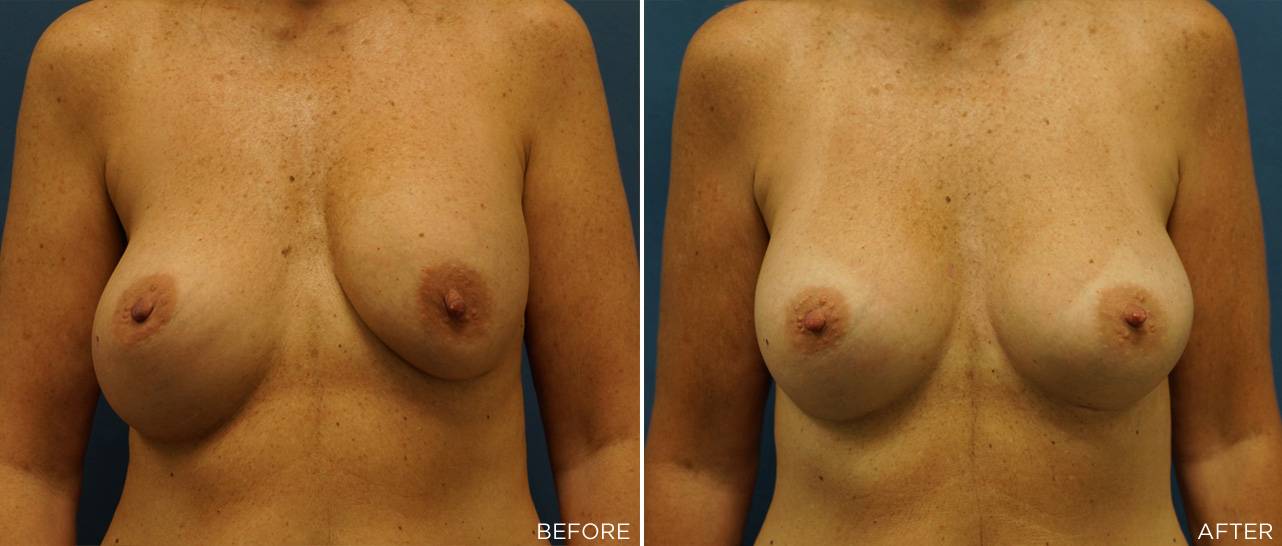 (Age 49, Capsulorrhaphy, 410cc silicone breast implants – performed by Dr. Craven)
(Age 49, Capsulorrhaphy, 410cc silicone breast implants – performed by Dr. Craven)
Implant Rupture
While it is possible for breast implants to rupture (when a tear to the outer shell of the implant causes the filling to leak out), statistics show the likelihood of rupture is fairly low. There are numerous studies that indicate the chance for rupture at around 1% per year.
Typically, the rupture of silicone breast implants results in the very slow leak of the silicone gel filler. The leakage of silicone can be so slow that the rupture is not visually noticeable and may not be diagnosed for many years. Magnetic resonance imaging (MRI) is the most effective method for detecting silent rupture of silicone gel-filled breast implants. The FDA recommends an MRI screening at 3 years after implantation and every subsequent 2 years thereafter that to screen for rupture.
When saline implants rupture the saline filler (salt water) leaks out, quickly resulting in the implant deflating (like a balloon). This causes extreme differences in the shape and size of the breast. As such, saline implant ruptures are easy to diagnose. The leaked saline is absorbed by the body and is usually harmless.
Learn more about breast implant rupture here.
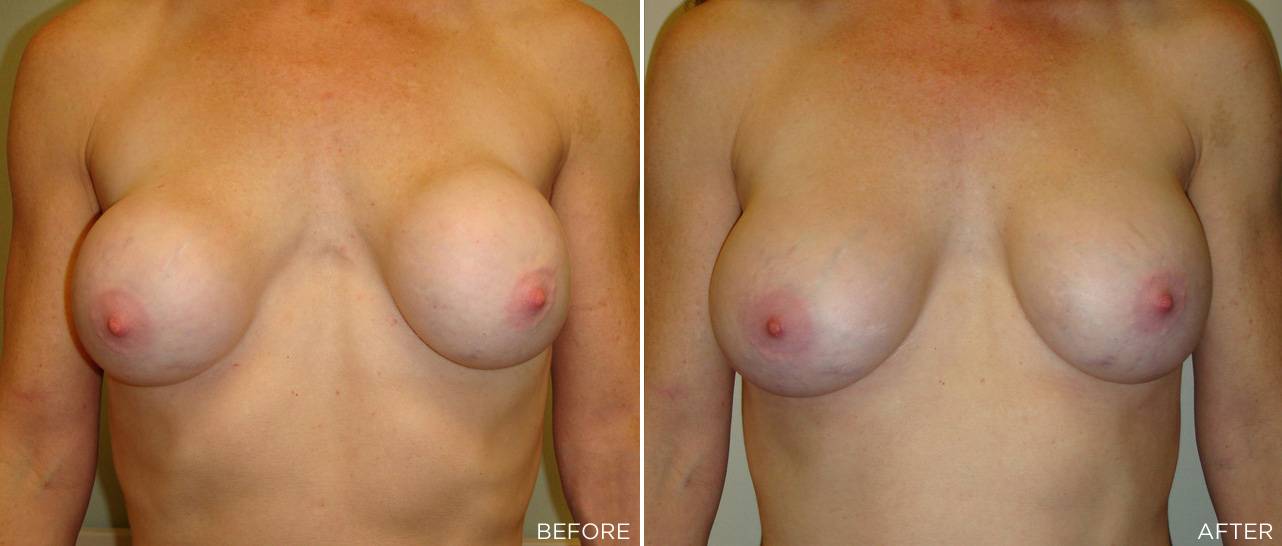 (Age 47, acquired breast deformity, capsular contractures, implant exchange using 375 cc high profile silicone implants -performed by Dr. Craven)
(Age 47, acquired breast deformity, capsular contractures, implant exchange using 375 cc high profile silicone implants -performed by Dr. Craven)
Implant Rippling
Breast implant rippling (or wrinkling) results in folds or wrinkles in the implant that can be visible through the skin. Ripples usually occur on the bottom or sides of the breast.
Symmetry Issues
As the body naturally ages or experiences significant changes from weight gain or loss the breasts may take on an asymmetrical appearance. If this occurs implant replacement may be necessary to reinstate an even appearance.
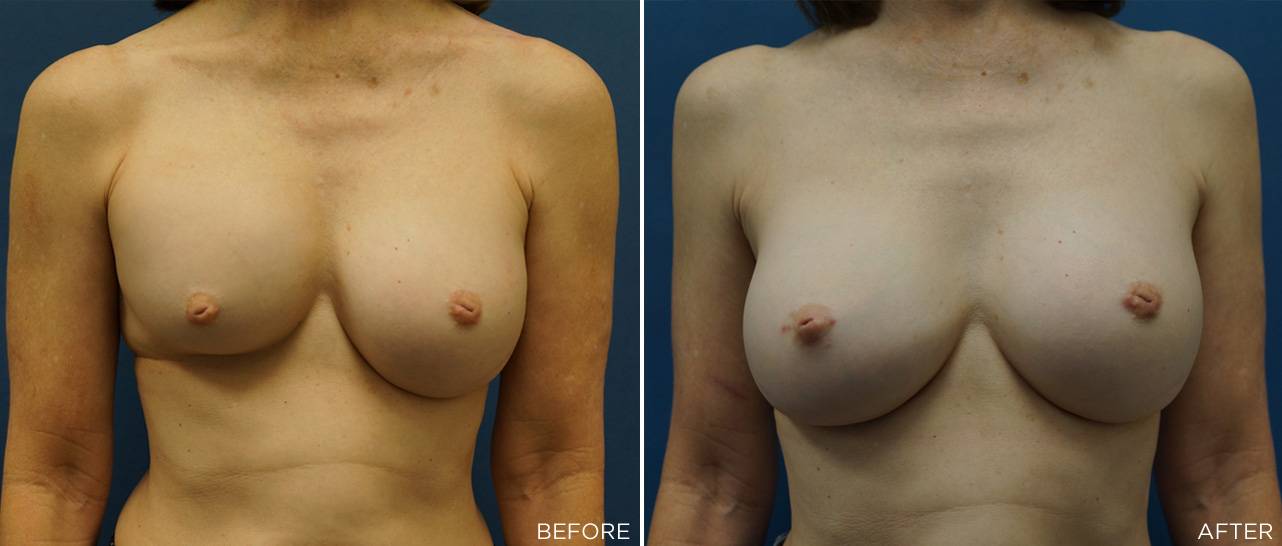 (Age 63, right capsulectomy and implant exchange, 400cc moderate plus profile, correction of bilateral inverted nipples -performed by Dr. Craven)
(Age 63, right capsulectomy and implant exchange, 400cc moderate plus profile, correction of bilateral inverted nipples -performed by Dr. Craven)
Capsular Contracture
Capsular contracture is a complication of breast implants stemming from how the body’s immune system reacts to foreign material (the implant) within the body (i.e., your chest muscles and skin don’t readily accept the implant as a natural part of your breast). In order to isolate the implant and keep it from growing, spreading, or wandering, your body creates a sack, or capsule of scar tissue around it, to seal it off. A capsule around a breast implant is a naturally occurring tissue that can benefit you. However, if that capsule contracts or thickens, it can squeeze your implant. This contracture is what will cause pain, shifting, distortion, or hardening of the reconstructed breast.
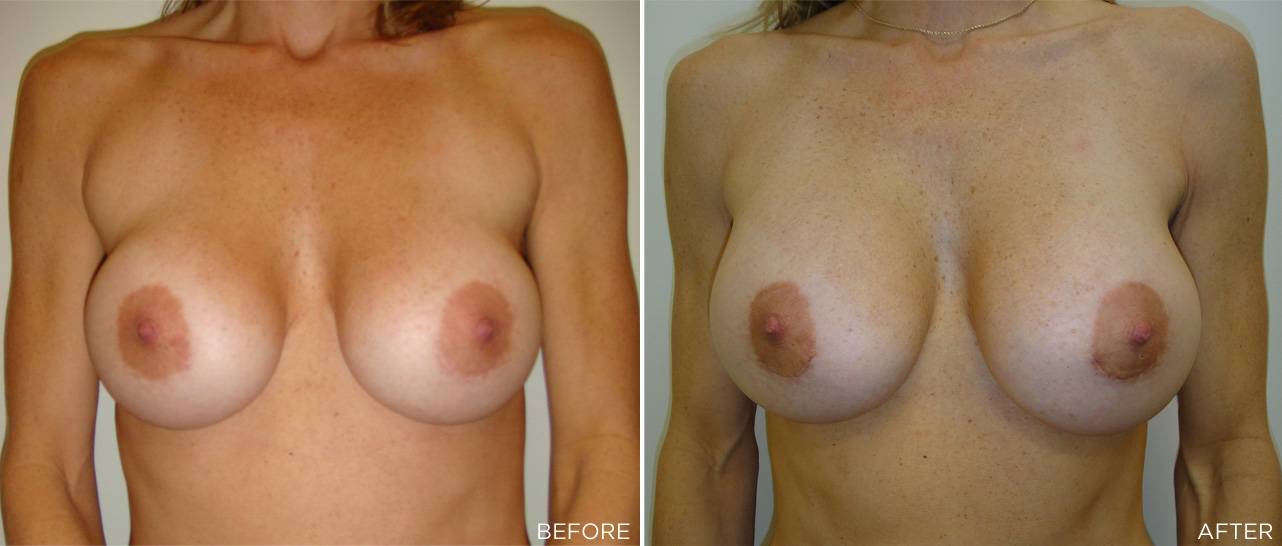 (Age 42, capsular contracture, implant exchange using 425 cc moderate plus profile silicone implants -performed by Dr. Craven)
(Age 42, capsular contracture, implant exchange using 425 cc moderate plus profile silicone implants -performed by Dr. Craven)
Patient Dissatisfaction
Another potential reason for the need or desire for breast implant replacement is that the patient may no longer like the cosmetic appearance of the implants. This could be due to reasons including weight loss, pregnancy, or other physical issues with implants that may be too large or too small.
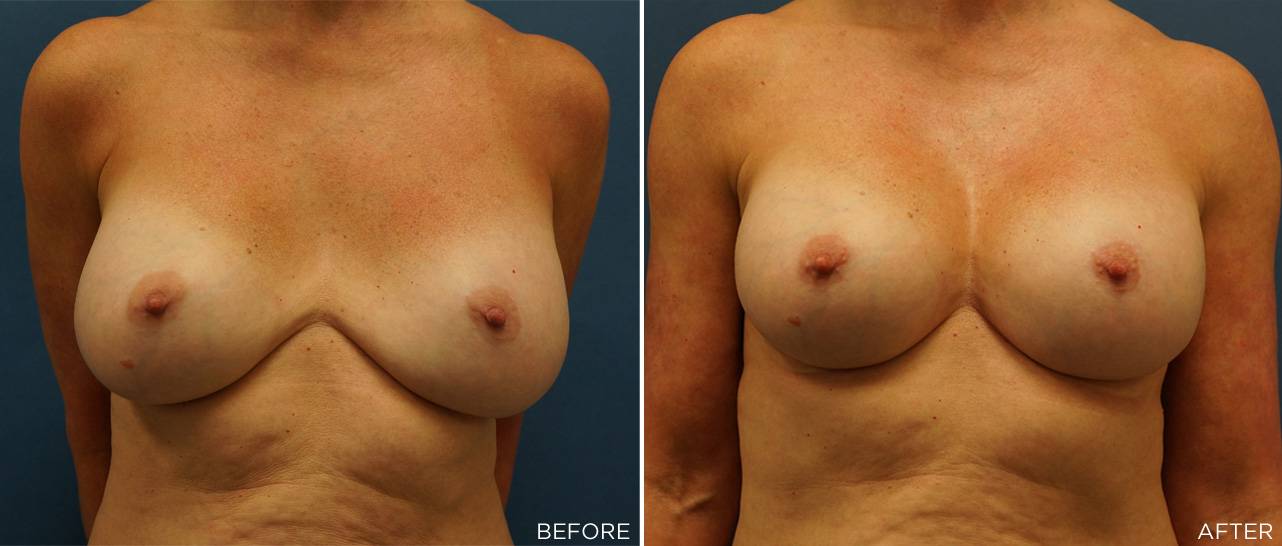 (Age 56, implant exchange using 500 cc high profile silicone implants -performed by Dr. Craven)
(Age 56, implant exchange using 500 cc high profile silicone implants -performed by Dr. Craven)
To learn more about breast implant revision surgery or see more before and after images please contact us today!
Disclaimer: The contents of the Westlake Dermatology website, including text, graphics, and images, are for informational purposes only and are not intended to substitute for direct medical advice from your physician or other qualified professional.

Great to get some expert answers on this. Thanks!
Intereesting case, thanks for sharing
Great post! How can I find out more about breast augmentation revision procedures?